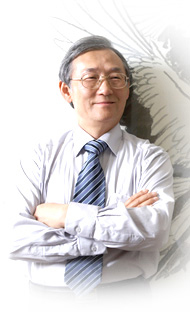Selected Speeches
Dr. Leeserved as the President of SNU from 2006 to 2010. These are selected speeches during his presidency.
Welcoming Address at the Internaional Conference on Developmental Politics and the Neoliberal Era and Beyond (Oct. 22, 2009)
HIT: 12651
Welcoming Remarks
International Conference on Development Politics in the Neoliberal Era and Beyond:
Comparative Cases and Critical Issues
Dr. Jang-Moo Lee
President of Seoul National University
October 22, 2009
Hoam Faculty House
It is a great pleasure to welcome you to the Conference, which has been organized by the Center for Social Sciences on our campus, under the title “Developmental Politics in the Neoliberal Era and Beyond.”
We now witness tremendous transformations around the world. For over 20 years, “neo-liberalism” and “globalization” have been key words for the international community. These processes appear to have challenged various types of national development models across the world and have even promised to bring everlasting prosperity and affluence on a global level. They have also shaped and changed our everyday experiences and, in extension, our ways of seeing the world and ourselves.
In all senses, neo-liberalism and globalization have been national and international frameworks within which we have lived and will respond to the new challenges that we face. However enormous these challenges and their results may be, the process surely will shape the future of everyone on this planet. This is why I hope the conference will be one step toward developing sustainable alternatives.
This conference has been organized around the questions of how to conceptualize our “old” and “national” development models in various countries and what is to be learned from “past” and “recent” failures in order to imagine possible alternative transformations in the future. I firmly believe that this meeting will provide an extraordinary opportunity to exchange and to share knowledge that will help to bring about a new paradigm for development.
At the start of the 21st century and at the beginning of a new global economic regime, which will greatly change the lives of humankind, I strongly believe that it is the scholar’s task and responsibility to shed new light on and to provide critical assessments of our experiences. Working together, academics can thereby take one important step forward in creating more sustainable social and political environments. We are facing a process of renewal, which I hope and know that this multifaceted dialogue will help to advance. It may even lead us toward productive outcomes in the future.
While this conference is only a gathering of social scientists on the theme of globalization and development, I am very hopeful that it will entail similar occasions in other academic fields dedicated to fostering more desirable models of development and prosperity for all nations.
I have no doubt that this event will be a stimulating and ongoing exchange of ideas on these and other related issues. Please accept my warmest welcome and gratitude for your attendance and contribution.
Thank you.
International Conference on Development Politics in the Neoliberal Era and Beyond:
Comparative Cases and Critical Issues
Dr. Jang-Moo Lee
President of Seoul National University
October 22, 2009
Hoam Faculty House
It is a great pleasure to welcome you to the Conference, which has been organized by the Center for Social Sciences on our campus, under the title “Developmental Politics in the Neoliberal Era and Beyond.”
We now witness tremendous transformations around the world. For over 20 years, “neo-liberalism” and “globalization” have been key words for the international community. These processes appear to have challenged various types of national development models across the world and have even promised to bring everlasting prosperity and affluence on a global level. They have also shaped and changed our everyday experiences and, in extension, our ways of seeing the world and ourselves.
In all senses, neo-liberalism and globalization have been national and international frameworks within which we have lived and will respond to the new challenges that we face. However enormous these challenges and their results may be, the process surely will shape the future of everyone on this planet. This is why I hope the conference will be one step toward developing sustainable alternatives.
This conference has been organized around the questions of how to conceptualize our “old” and “national” development models in various countries and what is to be learned from “past” and “recent” failures in order to imagine possible alternative transformations in the future. I firmly believe that this meeting will provide an extraordinary opportunity to exchange and to share knowledge that will help to bring about a new paradigm for development.
At the start of the 21st century and at the beginning of a new global economic regime, which will greatly change the lives of humankind, I strongly believe that it is the scholar’s task and responsibility to shed new light on and to provide critical assessments of our experiences. Working together, academics can thereby take one important step forward in creating more sustainable social and political environments. We are facing a process of renewal, which I hope and know that this multifaceted dialogue will help to advance. It may even lead us toward productive outcomes in the future.
While this conference is only a gathering of social scientists on the theme of globalization and development, I am very hopeful that it will entail similar occasions in other academic fields dedicated to fostering more desirable models of development and prosperity for all nations.
I have no doubt that this event will be a stimulating and ongoing exchange of ideas on these and other related issues. Please accept my warmest welcome and gratitude for your attendance and contribution.
Thank you.
